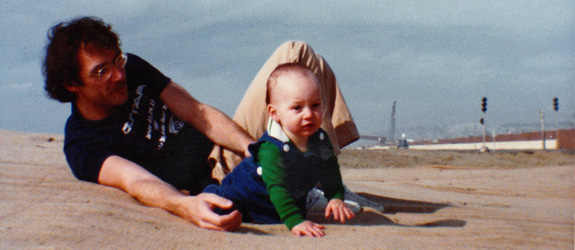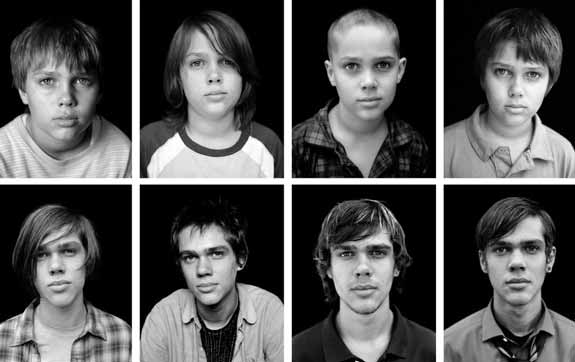‘Boyhood,’ Manhood and Everything in Between

A couple weeks ago, I went to see a movie with a friend. We’re both fathers and very open about how hard it can be. We vent, and inappropriately joke about the crushing effort required to make sure a distinctly separate human being from ourselves doesn’t end up maiming, dulling or otherwise mortally wounding themselves every day. The parlance of two fathers in a room together is often filled with language about their kids. It’s more than habit. It’s basic encoding.
In the space of a conversation, we talk about lots of things, mostly creative, but it always ends up with a sort of casually morose, sardonic gesture about The End. The end of the line. The end of us, even while we’re working on our children’s beginnings.
So it makes sense that two thoughtful dads would end up in a movie theater at 10:15pm on a Sunday evening to see a film titled, “Boyhood” directed by Richard Linklater.
“Boyhood” centers around four posable characters running through human iterations and undulations as they grow older. Literally. The film was photographed over a 12-year period for about a week at a time, each year. We watch a boy lengthen and lean out from a fleshy 6-year-old cherub into a gangly late-teen. The experience is haunting in ways I can’t even begin to describe. Life has never felt more fleeting.
Right after we’d entered the screening room, arms filled with emotional eating ammunition, the usher announced a runtime of nearly three hours. Neither of us had bothered to check beforehand. All we knew was that we absolutely needed to see the movie. Under the influence of heavy corn-syrup-based narcotics and severely under-slept, we staggered out of there convinced we’d seen our own ghosts. Again, time was not on our side.

Linklater captured some of the most honest and frill-less moments of Patricia Arquette’s and Ethan Hawke’s careers, respectively. For all its flaws, “Boyhood” is covertly, albeit unsettlingly, moving. It’s as if someone reoriented the sun to rise in the west and set in the east over the course of a lifetime. Only when you’ve noticed it can it strike you.
And the skimming time changes are frictionless. There aren’t any loud, Nolan-esque WHOMPs nor is there a signature WHOOSH as ABC so politely reminded us on the TV show “Lost.” There is only silence and sound. Dialogue and recurring themes that play out in an accelerated, realtime environment with characters who struggle against themselves, their roles in life and the players as they enter and exeunt.
While the film’s concept isn’t cliche, it isn’t impervious either. A few overacted scenes and obsessively repetitious themes find their way into the story, but, honestly, such is life. I’ve overacted plenty in my real life to gain ground and if I’d found a way to stop myself from repeating mistakes over and over I would’ve been heralded on this planet as some form of demigod.
No, audiences shouldn’t expect perfection from “Boyhood” but they can expect honesty where it counts. I kept waiting for the dramatic turn. I’ve been force-fed so much filmic stimulus that I waited for something epic to take place. But what happened in the movie was only the beginning for me.
I’ve never experienced a movie that made me feel so nakedly existential about being a father. A few films have made me examine my life as a son, but not as a parent. I knew I’d turned a corner when I saw a movie about a boy growing up and distinctly identified with his parents instead, faced with a mirror reflection I didn’t recognize. Myself. A grown man with two kids seeing the beginning and end of his own road. In a blink. Total running time, unknown.




